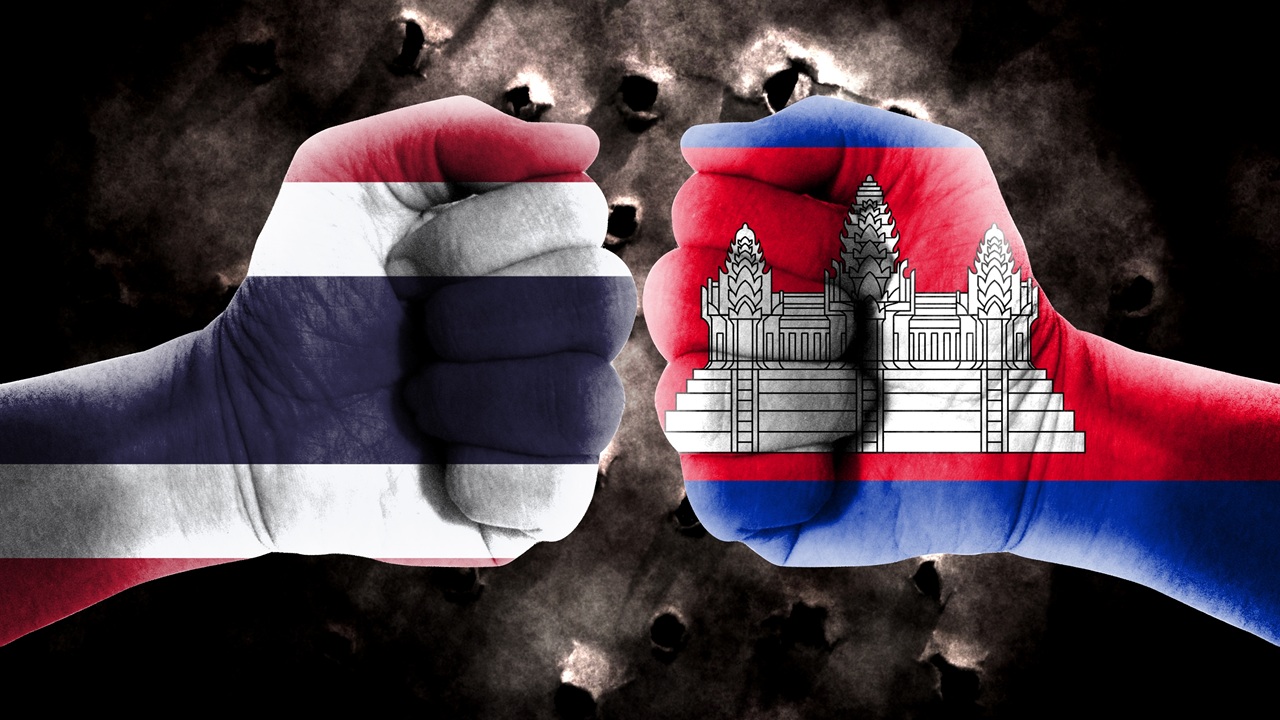The simmering tensions between Thailand and Cambodia have erupted into renewed conflict, unveiling a complex web of historical grievances, domestic political maneuvers, and escalating geopolitical competition that extends far beyond their shared borders. This latest escalation transcends simple border skirmishes, signaling a deeper struggle for regional dominance and the control of strategic resources in Southeast Asian Geopolitics.
Despite recent international efforts, including reported leverage from the United States to secure a temporary ceasefire, the fragile peace quickly shattered. Local reports confirm that Cambodian forces breached the truce within hours of its enactment, reigniting hostilities. This demonstrates the profound intractability of the Thailand-Cambodia Conflict, rooted in long-standing Territorial Disputes that trace back to the French colonial era over a century ago.
Recent military engagements have seen Cambodian forces launching assaults on the Thai Army in several contested areas, notably Chong An Ma, Ta Muen Thom, Phu Makheua, and the ancient Don Tual Temple. The Thai Army has responded by placing its troops in defensive positions, prepared for intense fighting, as Cambodia’s actions appear to be part of a calculated strategy by Phnom Penh to assert control over these strategically vital territories, all located within a close proximity to each other.
Underpinning Cambodia’s aggressive stance is a fascinating domestic political narrative centered around Prime Minister Hun Sen, a figure synonymous with Hun Sen’s Cambodia. A former Khmer Rouge member who later allied with Vietnamese-backed rebels, Hun Sen has dominated Cambodian politics for four decades, recently transitioning power to his eldest son, Hun Manet. However, observers suggest that the elder Hun Sen remains a powerful force, potentially leveraging nationalist fervor to solidify support for his son’s new premiership amidst what many consider a questionable election.
Adding another layer of intrigue is the personal and political rift between Hun Sen’s ruling clan and the family of former Thai leader Thaksin Shinawatra. While the precise reasons for this spectacular falling-out remain unclear, speculation is rife that this personal breakdown is significantly influencing the current Thailand-Cambodia Conflict, further entangling domestic politics with broader international relations and Southeast Asian Geopolitics.
Beyond internal dynamics, the larger geopolitical game profoundly impacts the conflict. Cambodia maintains a close strategic alliance with the People’s Republic of China, relying heavily on Chinese arms sales and infrastructure development. Beijing’s substantial investment in modernizing and expanding Cambodia’s critical Ream Naval Base, located on the Gulf of Thailand, is particularly noteworthy. This facility grants China exclusive access to key areas, raising questions among analysts about the true extent of China’s Regional Influence and military presence in the area, a strategic waterway Beijing aims to dominate.
The economic stakes in this conflict are exceptionally high, particularly concerning the contested Offshore Concession Area (OCA) in the Gulf of Thailand. This vast seabed, spanning over 10,000 square miles, is estimated to hold immense reserves of natural gas and oil, valued at an estimated $300 billion. The dispute over these lucrative energy resources, which dates back to the 1970s, underscores the potential for a massive windfall for whichever nation ultimately gains control, highlighting the critical importance of Gulf of Thailand Oil and gas to regional economies.
Ultimately, if Cambodia successfully solidifies its claims in this war, it stands to significantly enhance its own geopolitical and geoeconomic standing. However, this advancement would invariably expand China’s Regional Influence in Southeast Asian Geopolitics, potentially at the expense of the United States and its established alliances, such as with Thailand. This makes the present Thailand-Cambodia Conflict rapidly evolve into a proxy battle, where the outcome will reverberate across the Indo-Pacific, delivering a significant blow to whichever global power loses ground.






Leave a Reply